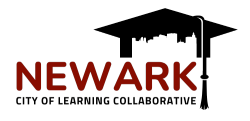Building Newark’s college-going culture
students & families
fafsa 2024-25

What We Know
NCLC was launched in January 2015 to ensure that all Newark residents have the opportunity, information, and access to go to college, afford college, complete college, and ultimately obtain good jobs. As Newark continues to experience an economic resurgence, residents need to be equipped with the skills and credentials to compete for employment in the city.
What We’ve Learned
Compared to state and national rates, Newarkers have fallen behind in post-secondary attainment, or degrees and credentials earned after high school. In 2018 roughly 21% of Newark residents had earned an associate degree or higher, compared to 46% of all New Jersey residents and 40% of Americans. In today’s economy, more than half of all jobs require a credential higher than a high school diploma or GED. For Newark to thrive, it is essential that more residents go to college.
NCLC ensures Newarkers have the opportunity, information, and access to obtain:
-
-
-
-
- Bachelor’s Degrees
- Associate Degrees
- High-Quality Credentials Aligned to High-Growth Industries
-
-
-
%
newarkers
Enrolled in college or graduate programs compared to 26.8% of state residents in 2021.
%
high school graduates
Enrolled in 2-year college within 16 months of graduation in 2021 (compared to 27.9% of state residents).
%
higher employment
For individuals with a Bachlor’s degree than for those with only a high school diploma in the year 2022.
%
newarkers
Aged 25+ held an Associate degree or higher in 2021 (compared to 50.1% of state residents).
%
increased earnings
For individuals with a degree, as of 2022.
postsecondary schools
In New Jersey with varying degrees, credentials, and programs.
%
high school graduates
Enrolled in 4-year college within 16 months of graduation in 2021 (compared to 72% of state residents).
%
fafsa completion
In Newark, which exceeds the national average by nearly ten percent.
Our Commitment
NCLC is made up of partners from community-based organizations, K – 12 schools, local government, foundations, corporations, and higher education. All partners support a shared goal of increasing the proportion of Newark residents with a degree or credential beyond high school to 25% by the year 2025 and ultimately sustaining Newark’s college-going culture well beyond 2025.
A Note From Our Executive Director
When I took the helm at NCLC in 2020, I inherited the broad goal of 25% of Newarkers obtaining a postsecondary credential by 2025. It was my immediate intention to investigate the ability to accomplish, measure, and build on this target. Additionally, our Advisory Board expanded our focus to increasing the number of youth AND adults with a postsecondary degree or credential.
Since my start in November 2020, I have been meeting with partners across the City, listening for where the gaps and opportunities in college attainment could be found. What we have learned – during- and post-pandemic – is that building a college-going culture in Newark, requires more measurable, actionable goals and a shared understanding of how to achieve them.
Presently, we prioritize a shared end-goal with partners and stakeholders across the City. Multiple factors have impacted this. Numerous entities pursue improved college access for Newarkers utilizing various approaches, metrics, and definitions of terms like “college” and “postsecondary.” NCLC seeks to discover if and how a strong network can align these varying interests with an overarching ambition to create postsecondary pathways with an eye towards equity.
Operationalizing our Collective Impact Approach, we are committed to listening for, measuring, and guiding a shared goal by asking following questions of our partners, such as:
-
-
-
- How do you define postsecondary?
- What is your postsecondary goal?
- How are you working to achieve that?
- How do you know you’re successful?
- How do you advise on college financial capabilities (scholarships, financial aid, etc.)?
- What substantive data do you use to inform strategies?
-
-
NCLC cannot hope to support communities in Newark without understanding their intricacies, and most importantly—their residents. Collaborating with Stakeholders (Higher Ed institutions, NBOE, college access programs, high school counselors, apprenticeship programs, parents, students) is helping to inform the development of shared goals and the approaches and resources necessary to achieve them.
With this information, NCLC will be able to develop shared goals and metrics, and clear postsecondary pathways (transition navigators, brick-and-mortar support centers, informed counselors at the high school and higher ed level, along with a shared understanding for how high school students, non-traditional students, and adults in the workforce) can better access opportunity.
Robyn Ince
Robyn Ince
Meet Our Team

